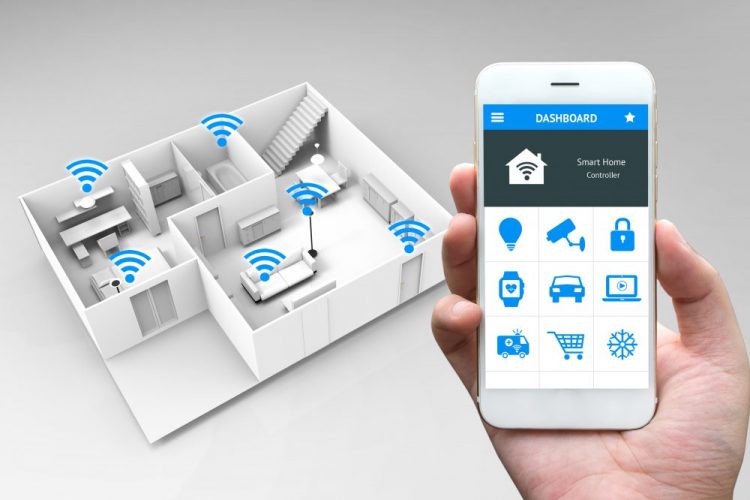Smart Home Connectivity – The Benefits, and the Risks
Published on May 22, 2019 by Sarah Mac

The smart home scene is taking off in a big way and, with 58 per cent of 27-36 year olds interested in smart technology, it is no wonder landlords are increasingly introducing modern methods of home security and automation into their properties.
The smart home is one that can be controlled from a phone or tablet. From alerts that tell you if a door or window has been left open on the way out and home security cameras that relay images to your phone, through to the ability to control your heating and lighting remotely, stock up on groceries using buttons on your fridge, open your front door with a phone tap and plenty more besides, there really is a lot to like. As a landlord seeking to differentiate your property, the addition of smart home features could well work to your advantage.
There are however potential risks to consider and these must be explored before you get started with connecting everything. Bear in mind that any device that connects to the internet wirelessly is potentially hackable, so if you are going down the smart route then you’re going to need to take careful steps to make sure your connected home is secure. And this includes educating your tenants in all things cyber security.
How does a smart home work?
A smart home is essentially a network of devices connected to each other using Wi-Fi via a smart home hub such as the Amazon Echo, Google Home or Apple HomePod. These hubs work as smart controllers, processing your commands to dim the lights or turn up the heating via smart plugs. It is these hubs that are the main security risk in a connected home.
It was recently demonstrated that a modified Amazon Echo was able to gain remote access to other devices on the same network and record private conversations. And in 2017, a hacker got into a smart thermostat and raised the temperature from 24 to 35 degrees. Not a major security risk, but it does prove that home hubs can act as entry points to other connected systems. And if those systems control the security of your home – like smart locks that allow the unlocking of front doors with the tap of a smartphone for example – then you can immediately see the risk.
Most smart controllers store data locally on the device. So, when connected to the cloud, a remote hacker could easily access the server and download this data which could be anything from personal identity details to financial information used for shopping.
How to prevent smart home hacking?
There are various ways to protect your smart connected property. Be sure to share them with your tenants!
1. Take care with passwords
You can easily allow unauthorised access to a smart home hub by leaving the password set to default. So be sure to advise tenants to replace their hub password with a strong, unique alternative using a mixture of letters, symbols and numbers. Encourage them to change it regularly too.
2. Secure the wireless router
It is vital that the settings on the wireless router are robust. Again, a strong, unique password is essential, and the network name should be changed too. In addition, advise tenants to deactivate WPS (Wi-Fi Protected Setup). This was designed to make it more straightforward to connect new devices to a network with a simple press of a button, but by design it can weaken network security, sometimes allowing unauthorised users on a Wi-Fi connection to download illegal content; hack a PC; access networked hard drives and alter data sent to and from a PC. Router firewalls should never be disabled, and the firmware should always be kept up to date. Check the router guide book for instructions.
3. Check CCTV logs
Smart CCTV camera records are date and time stamped just like any digital file. Check them regularly. If camera activity is detected at unusual times, or when no one has been at home, it could indicate a system compromise.
Keep your smart property safe
Remember, the security of your property is at risk if your tenants fail to follow cyber security procedures. If you wish to provide a modern, connected home, then you will need to take steps to protect it. There are benefits, but there are risks too. Providing you are aware of them, then you and your tenants should all be able to reap the rewards.

